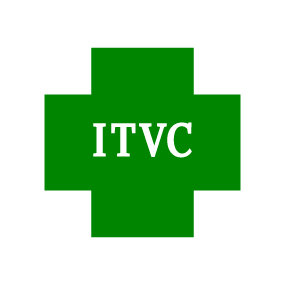Vaccinations for Asia
Travelling to Asia
Poliomyelitis cases in Asia
According to a June 22, 2004, Global Polio Eradication Initiative report, a single case of paralytic poliomyelitis was confirmed with onset of paralysis May 20 in a child in the West Darfur region of Sudan, 12 miles from the border with Chad. The poliovirus responsible for the case is genetically similar to wild poliovirus circulating in northern Nigeria.
Dengue Fever in Southeast Asia
The World Health Organization (WHO) South East Asia Region Office (SEARO) issued a dengue alert to all its member countries in the Southeast Asia region because of an increase in the number of dengue cases in Bangladesh, Indonesia and Sri Lanka. An outbreak of dengue fever was also reported for the first time from Bhutan. Dengue has been identified as the probable cause of the Bhutan outbreak through testing conducted at the National Institute of Communicable Diseases, Delhi
Rabies
Rabies is characteristically transmitted by the bite or scratch from rabid infected animals.
People who are intending to work in farms and work with other animals are strongly advised to have this prophylactic anti-rabies vaccination. As this vaccination involves a series of three vaccinations it is recommended to plan ahead for this vaccination.
Avian Influenza
Avian Influenza
Travelers to Cambodia, China, Indonesia, Laos, Thailand, and Vietnam are advised to follow standard health recommendations for that region and, as a precaution, avoid places such as poultry farms and bird markets where live poultry are raised or kept, and avoid contact with sick or dead poultry.
As with other infectious illnesses, one of the most important and appropriate preventive practices is careful and frequent hand washing.
Cleaning your hands often using either soap and water or waterless, alcohol-based hand rubs removes potentially infectious materials from your skin and helps prevent disease transmission
Japanese Encephalitis
Meningitis
Tetanus
Tetanus
Tetanus is different from other vaccine-preventable diseases because it does not spread from person to person. The bacteria are usually found in soil, dust and manure and enter the body through breaks in the skin - usually cuts or puncture wounds caused by contaminated objects or accidental injuries.
Symptoms and Complications
Tetanus is often called "lockjaw" because the jaw muscles tighten, and the person cannot open his mouth. The most common initial sign is spasms of the muscles of the jaw, or "lockjaw".
Tetanus symptoms include:
- Headache Jaw cramping
- Sudden, involuntary muscle tightening – often in the stomach (muscle spasms)
- Painful muscle stiffness all over the body
- Trouble swallowing
- Jerking or staring (seizures)
- Fever and sweating
- High blood pressure and fast heart rate
Tetanus complications include:
- Uncontrolled/involuntary muscular contraction of the vocal cords (laryngo-spasm)
- Pneumonia, a lung infection, that develops by breathing in foreign materials (aspiration pneumonia)
Prevention
Being fully immunized with tetanus vaccines for all ages is best way to prevent tetanus infection. New tetanus vaccine combined with other vaccination like Diphtheria,whooping cough and inactivated polio is best vaccine.


